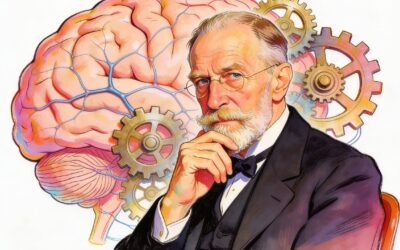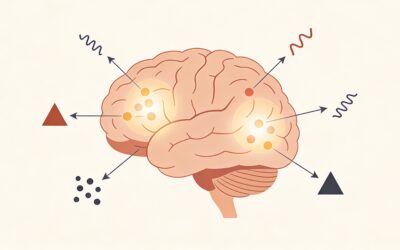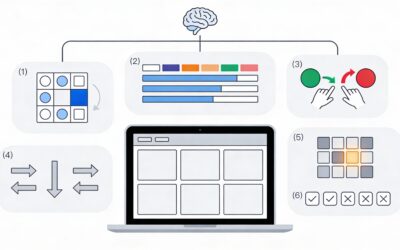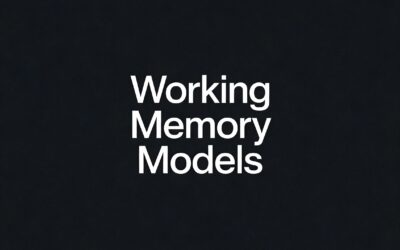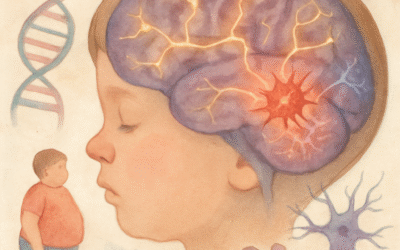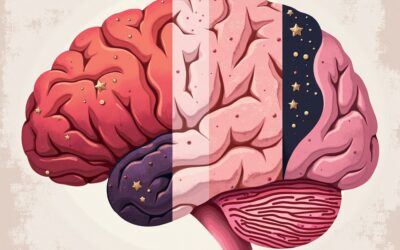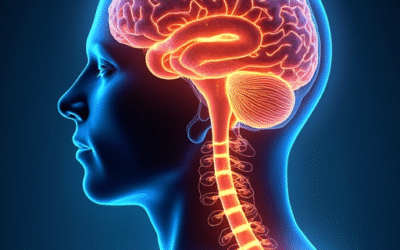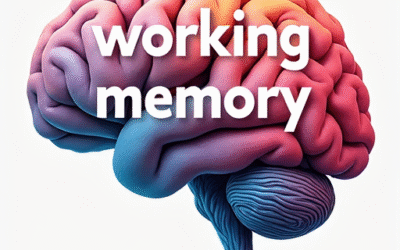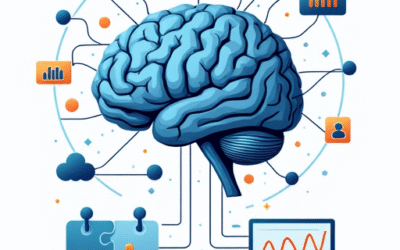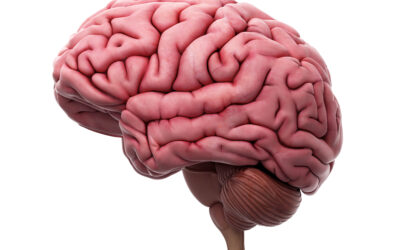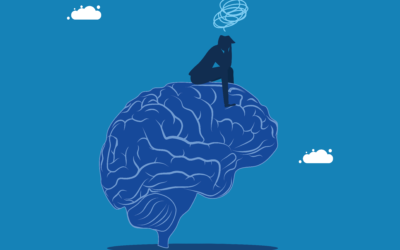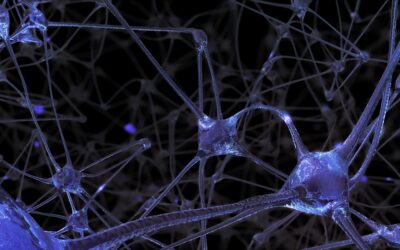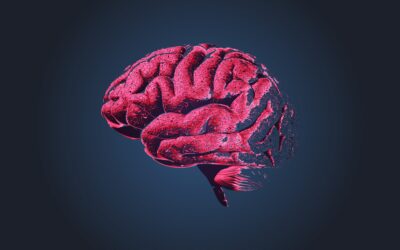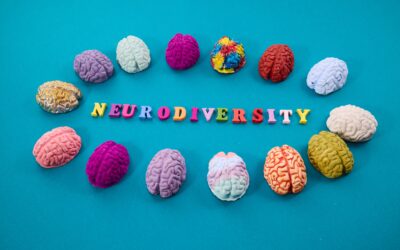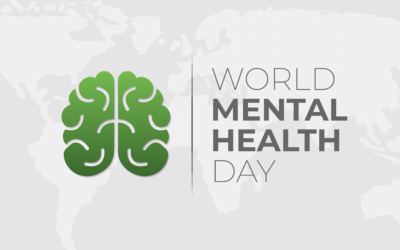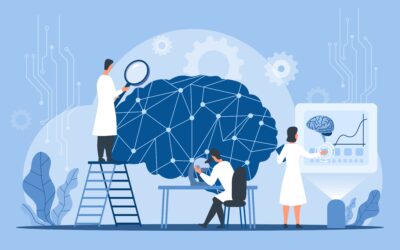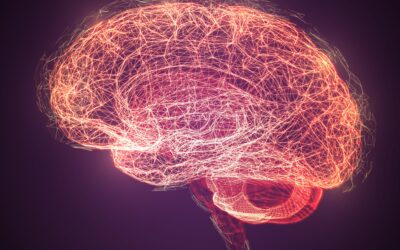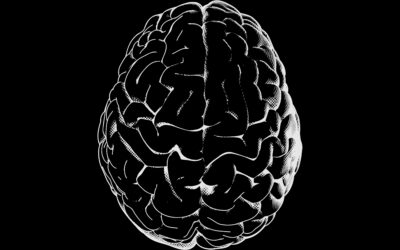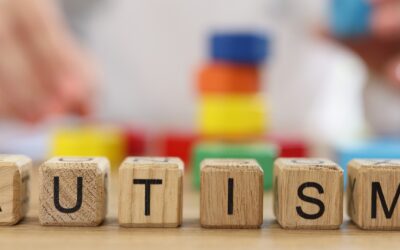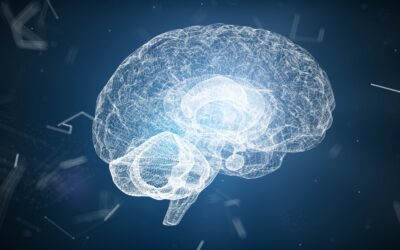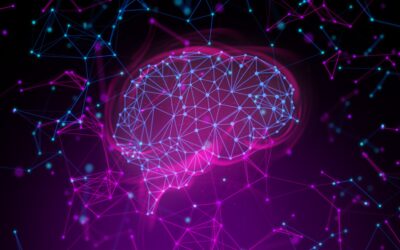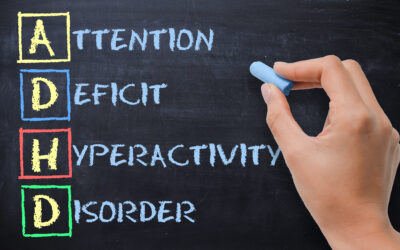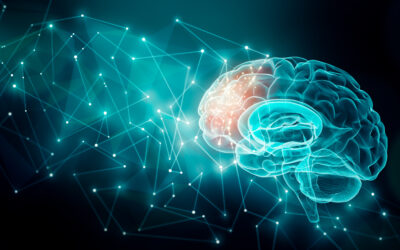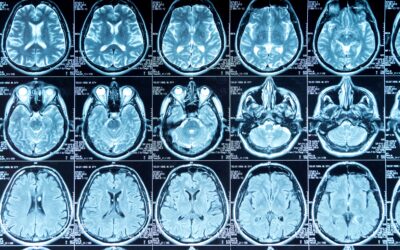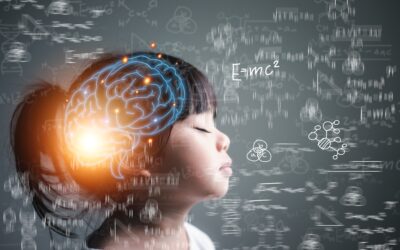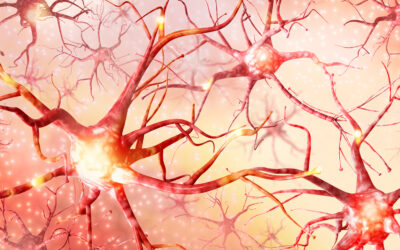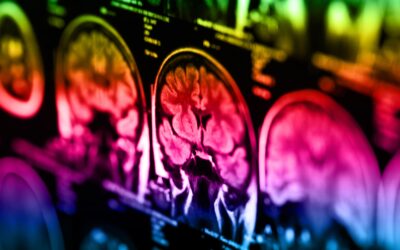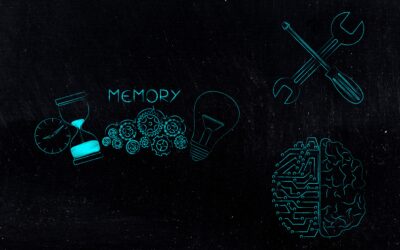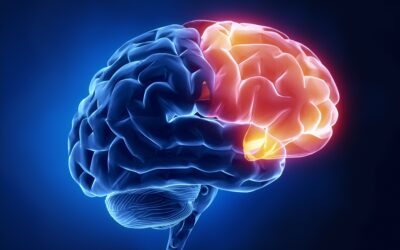Freud’s Psychoanalysis: Historical Foundations and Contemporary Intersections with Cognitive Science
Sigmund Freud’s theories, born in the consulting rooms of late 19th and early 20th century Vienna, represent a monumental, if contentious, intellectual endeavour to map the hidden terrain of the human psyche. A visit to his preserved London home at the Freud Museum...
Academic Burnout in School-Aged Children: Neurobiological Correlates and Executive Function Impairments
Academic burnout represents a psychological syndrome increasingly identified in paediatric and adolescent populations, characterised by a triad of persistent exhaustion related to scholastic demands, a detached and cynical attitude toward academic institutions, and...
The Impact of Burnout on Cognitive Performance
Burnout, operationalised as a syndrome of chronic workplace stress resulting in exhaustion, cynicism, and reduced efficacy, is associated with measurable alterations in neurobiological systems that govern cognitive performance. This essay examines the specific and...
Noise in Working Memory Research and Working Memory Training: Theoretical Mechanisms and Methodological Challenges
In contemporary cognitive neuroscience, the construct of "noise" in working memory research operates within two distinct but interrelated conceptual frameworks: first, as a theoretical mechanism explaining the fundamental computational constraints on cognitive...
Cognitive Impairment in Bipolar Disorder: A Persistent Trait Across Mood States
Bipolar Disorder (BD) is a severe and chronic psychiatric condition characterised by recurrent episodes of mania, hypomania, and depression, interspersed with periods of relative stability known as euthymia. Historically, the focus of research and clinical management...
A Systematic Taxonomy of Cognitive Assessment: Linking Task Paradigms to Specific Cognitive Functions and Neural Substrates
I. Core Executive Function Tasks (Miyake Framework) Shifting/Mental Set Shifting Tasks Task Name Primary Function Secondary Functions Key Performance Metrics Plus-Minus Task Mental set shifting Arithmetic processing, processing speed Switch cost (alternating list time...
The Prefrontal Cortex and the Childhood “Executive”: Mapping the Neural Trajectory of Working Memory Development
The cognitive abilities that enable a child to resist grabbing a forbidden sweet, to follow a teacher’s multi-step instruction, or to mentally rearrange the pieces of a puzzle are not mere products of simple learning. They are the outward manifestations of a profound...
Working Memory Models: From Baddeley’s Multicomponent Theory to Integrative Cognitive and Neural Frameworks
Baddeley’s multicomponent framework remains a central reference point, but subsequent work has elaborated, challenged, and partially integrated it with attention-based, interference-based, individual-differences, and neurocognitive models of working memory (Adams et...
The Efficacy of Cognitive Training in Mild Cognitive Impairment: A Focus on Immersive Virtual Reality Interventions
Mild Cognitive Impairment (MCI) represents a critical prodromal stage for dementia, necessitating effective interventions to slow cognitive decline. While pharmacological treatments have shown limited efficacy, non-pharmacological approaches, particularly cognitive...
Childhood Obesity as a Brain Disease: Neurodevelopmental, Genetic, and Cognitive Perspectives from Recent Scientific Research
Obesity in childhood is increasingly conceptualised as a brain disease, with compelling evidence demonstrating its deep neurobiological, genetic, and cognitive roots. Scientific studies reveal obesity alters brain structure, function, connectivity, and gene...
The Impact of Migraine on Cognitive Performance
Migraine represents a highly prevalent and frequently debilitating neurological disorder, characterised by recurrent episodes of moderate to severe headache, often accompanied by associated symptoms such as nausea, photophobia, phonophobia, and occasionally transient...
Common Causes and Treatments of Depression in Children and Adolescents
Introduction Depression in children and adolescents represents a growing public health concern, with rising prevalence rates observed in recent decades. It is estimated that up to 20% of youth may experience depression before adulthood, with potential implications for...
The Critically Overlooked Crisis: Post-ICU Cognitive Rehabilitation
The Critically Overlooked Crisis: Post-ICU Cognitive Rehabilitation Every year, millions of patients are discharged from intensive care units (ICUs) with their lives saved, yet they face an unrecognized epidemic: persistent and often severe cognitive impairments. This...
Understanding Cognitive Changes During Menopause: Insights from Recent Research and Hormone Therapy Implications
Research indicates that cognitive impairment is a common complaint during the menopausal transition, with multiple studies linking menopausal symptoms to later-life cognitive decline and increased risk of dementia (Greendale et al., 2010; Hogervorst, 2022; Ismail et...
Cognitive Impairment in Multiple Sclerosis
Multiple sclerosis (MS) is a chronic, immune-mediated demyelinating disorder of the central nervous system (CNS), predominantly affecting young and middle-aged adults. While historically characterised by physical symptoms such as weakness, sensory disturbances, and...
The Transformative Potential of Machine Learning Algorithms in Behavioural Pattern Analysis for Psychotherapy: A Scientific Perspective
The integration of machine learning (ML) algorithms into the analysis of behavioural patterns represents a significant frontier in enhancing psychotherapeutic practice. By leveraging computational power to detect subtle, complex, and often non-linear relationships...
Contemporary Research Perspectives on Working Memory: Models, Mechanisms, Strategies, and Interventions
Multicomponent Model The multicomponent model, originally proposed by Baddeley and Hitch (1974), remains one of the most influential frameworks in working memory (WM) research. This model posits that WM is not a unitary storage system but comprises several specialized...
The Importance of Knowledge, Experience, and Professionalism in Therapists: A Research-Based Perspective
Knowledge A therapist’s knowledge forms the foundation of effective therapeutic practice. This includes a deep understanding of psychological theories, evidence-based interventions, and the latest research in mental health. Knowledgeable therapists are better equipped...
The Science of Self-Compassion and Self-Forgiveness: Psychological and Health Benefits Backed by Research
Self-compassion is a multifaceted construct that includes self-kindness, recognition of common humanity, and mindfulness, allowing individuals to respond to personal failures or distress with understanding rather than harsh self-criticism (Neff, 2003). Research...
Application of Machine Learning in Cognitive Rehabilitation and Neuroimaging Research
Machine learning (ML), a subset of artificial intelligence (AI), has revolutionised healthcare by enabling data-driven decision-making, pattern recognition, and predictive analytics. In cognitive rehabilitation and neuroimaging research, ML offers unprecedented...
Working Memory Training Effects in Alzheimer’s Disease
Alzheimer's disease (AD) is a progressive neurodegenerative disorder characterised by cognitive decline, with working memory deficits emerging as one of the earliest and most significant challenges. As pharmaceutical interventions have shown limited success in...
The Impact of Anxiety on Working Memory Performance
The intricate relationship between anxiety and working memory performance has become an increasingly significant area of research in cognitive psychology and neuroscience. This analysis explores the complex mechanisms through which anxiety affects working memory and...
Working Memory Training in Multiple Sclerosis: Cognitive Rehabilitation and Neural Plasticity
Multiple Sclerosis and Cognitive Impairment Multiple sclerosis (MS) is a chronic neurological disorder that affects the central nervous system, primarily targeting the brain, spinal cord, and optic nerves. It is characterised by the immune system attacking the...
Cognitive Rehabilitation in Schizophrenia: The Role of Working Memory Training
Schizophrenia is a complex psychiatric disorder characterised by a range of symptoms that significantly impact an individual's thoughts, perceptions, emotions, and behaviour. According to the Diagnostic and Statistical Manual of Mental Disorders, Fifth Edition...
The Intricate Web: Exploring the Relationships Between Emotional Intelligence, Trauma, and Working Memory Performance
Emotional Intelligence Emotional intelligence (EI) refers to the ability to perceive, express, understand, and manage emotions (Mayer et al., 2004). It has been conceptualised in various ways, primarily falling into three main models: ability-based, trait-based, and...
Canine Grief: A Review of Scientific Research on Dogs’ Responses to the Loss of a Companion
This article is dedicated to all the dog families who have experienced the heartbreaking loss of a beloved canine companion. The bond between dogs and their human families is profound, and the grief felt when losing a furry family member can be overwhelming. Equally...
Neuroplasticity and Neural Regeneration: Mechanisms of Brain Adaptation and Recovery
Neuroplasticity and neural regeneration are fundamental processes that underpin the brain's remarkable ability to adapt, recover, and potentially enhance its functions throughout life. This essay explores the mechanisms of neuroplasticity, its occurrence in various...
Evolving Landscape of HIV-Associated Neurocognitive Disorders: Challenges in Screening and Management in the cART Era
HIV-associated neurocognitive disorders (HAND) remain a significant concern for people living with HIV (PLWH), even in the era of combination antiretroviral therapy (cART). Despite the effectiveness of modern treatments in suppressing viral loads and improving overall...
Mapping Neurodivergence: Current Perspectives on Atypical Brain Development
The contemporary understanding of neurodivergence in the developing brain has been significantly advanced by recent neuroimaging research, providing unprecedented insights into the structural and functional differences that characterise neurodivergent brains. This...
Childhood Trauma and Brain Development: Impact, Types, and Interventions
Childhood trauma can have profound and lasting effects on the developing brain, influencing cognitive, emotional, and behavioural outcomes throughout life. This essay explores how trauma alters brain development, examines different types of trauma and their impacts,...
World Mental Health Day 2024: Prioritizing Mental Health at Work
World Mental Health Day, observed annually on October 10th, serves as a global platform to raise awareness about mental health issues and mobilize efforts to support mental well-being. The World Federation for Mental Health (WFMH) has designated the theme for 2024 as...
Working Memory in Educational Contexts: Developmental Trajectories, Classroom Implications, and Evidence-Based Support Strategies
Working memory plays a crucial role in children's cognitive development and academic achievement. As a limited-capacity system for temporarily storing and manipulating information, working memory underpins many essential learning processes. This review examines key...
Executive Functions and Working Memory: Similarities, Differences, and Interrelationships
Executive functions (EF) and working memory (WM) are two closely related cognitive constructs that play crucial roles in higher-order thinking, problem-solving, and goal-directed behaviour. While there is significant overlap between these concepts, they are not...
Brain Imaging Techniques: Unveiling the Neural Basis of Working Memory
Brain imaging techniques have revolutionised our understanding of the human brain, allowing researchers to peer into the intricate structures and functions of this complex organ. These techniques can be broadly categorised into two main types: those that examine brain...
The Emotional Landscape of Loss: Exploring the Parallels and Divergences in Human and Pet Bereavement
Grief is a universal human experience that can occur following the loss of a loved one, whether human or animal. While the loss of a human companion has long been recognized as a significant source of grief, the emotional impact of losing a pet has gained increasing...
Working Memory Training and Grief: Exploring Cognitive Interventions in Bereavement
Bereavement, the experience of losing a loved one, is a profound and often devastating life event that can significantly impact an individual's cognitive, emotional, and psychological functioning. The grief that follows such a loss can be intense and prolonged,...
Autism Spectrum Disorder: Characteristics, Diagnosis, and the Efficacy of Working Memory Interventions
Autism Spectrum Disorder (ASD) is a complex neurodevelopmental condition characterized by persistent challenges in social communication and interaction, as well as restricted and repetitive patterns of behavior, interests, or activities (American Psychiatric...
The Critical Role of Cognitive Rehabilitation in Neurological Recovery: A Comprehensive Review of Evidence-Based Approaches and Long-Term Outcomes
Cognitive rehabilitation plays a crucial role in promoting recovery and improving functional outcomes for individuals with neurological conditions. This comprehensive review examines the evidence supporting various cognitive rehabilitation approaches and their...
The Interplay of Attention and Working Memory: A Critical Review of Cognitive Mechanisms, Neural Substrates, and Implications for Information Processing
At its core, working memory serves as a temporary storage and manipulation system for information relevant to ongoing cognitive tasks. However, the limited capacity of working memory necessitates selective mechanisms to determine which information gains access to this...
Working Memory Training in Education: Evaluating Effectiveness, Challenges, and Future Directions
Working memory (WM) is a crucial cognitive system responsible for temporarily storing and manipulating information necessary for complex cognitive tasks (Baddeley, 2012). Given its strong association with academic performance and learning outcomes, there has been...
The Effectiveness of Working Memory Training for Individuals with ADHD
Attention-deficit/hyperactivity disorder (ADHD) is a neurodevelopmental disorder characterized by persistent inattention, hyperactivity, and impulsivity that interferes with functioning and development. As our understanding of ADHD has evolved, researchers have...
ADHD Across the Lifespan: Critically Examining the Developmental Origins and Adult-Onset Perspectives
Attention-deficit/hyperactivity disorder (ADHD) has traditionally been conceptualized as a neurodevelopmental disorder with onset in childhood. However, recent research has challenged this view, suggesting that ADHD may also emerge in adulthood for some individuals....
Working Memory Training and Its Role in Cognitive Rehabilitation
Working memory (WM) is a crucial cognitive function that allows us to temporarily store and manipulate information for complex cognitive tasks. It plays a vital role in various aspects of our daily lives, including problem-solving, decision-making, and learning. In...
Applications of Machine Learning in Working Memory Training: Advancements, Challenges, and Future Directions
Machine learning models are increasingly being utilized in working memory training, offering new possibilities for personalized and adaptive interventions. This essay explores the applications of machine learning in working memory training, highlighting its potential...
Neuroplasticity and Cognitive Enhancement: A Comprehensive Review of Working Memory Training Effects Through the Lens of Neuroimaging
Working Memory Training and Neuroimaging: Exploring Transfer Gains and Neural Plasticity Working memory, a critical cognitive function that allows for the temporary storage and manipulation of information, has been the subject of extensive research in cognitive...
The Transfer of Learning Gain from Working Memory Training
Transfer of Learning Gain from Working Memory Training Working memory training has been a topic of significant interest in cognitive psychology and educational research over the past two decades. The primary goal of working memory training is to improve an...
Schizophrenia as a Neurodevelopmental Disorder: Insights from Genetic and Clinical Research
Schizophrenia as a Neurodevelopmental Disorder: Recent Insights and Implications Schizophrenia has long been recognized as a complex psychiatric disorder with a significant genetic component. Over the past decade, substantial evidence has accumulated supporting the...
Brain Plasticity and Working Memory Training: Neuroimaging Evidence for Immediate and Delayed Effects
The neuroplasticity induced by working memory training (WMT) has emerged as a significant area of research in cognitive neuroscience. Recent neuroimaging studies have provided compelling evidence for both immediate and delayed effects of WMT on brain structure and...
Neuroimaging Insights into Working Memory: A Review of Functional Anatomy and Neurodevelopmental Changes
The latter half of the 20th century marked a significant era in cognitive science research, particularly in the domain of memory processes. Neuropsychological studies of brain-damaged patients provided crucial evidence supporting the dichotomous nature of human memory...
The Revolutionary Impact of Neuroimaging on Brain Development Research and Clinical Applications
The arrival of neuroimaging has revolutionized multiple scientific disciplines, offering unprecedented insights into human brain development and its intricate relationship with cognition, behavior, and affect. This powerful methodology has become indispensable for...
The Foundations and Far-Reaching Impact of Attachment Theory: From Infancy to Adulthood
Attachment Theory, developed by British psychologist and psychiatrist John Bowlby and American-Canadian psychologist Mary Ainsworth, revolutionised previous ideas about human development. Bowlby, through numerous observations, concluded that an infant's tie to its...
Navigating Methodological Challenges in Cognitive Training Research: A Critical Examination of Study Design and Interpretation
Cognitive training studies, particularly those focused on working memory, face several methodological challenges that can significantly impact the interpretation and reliability of their results. These challenges highlight the need for careful experimental design and...
The Promise and Controversy of Working Memory Training: A Critical Examination of Cognitive Enhancement Research
Working memory training (WMT) has emerged as a subject of intense interest and debate in cognitive enhancement research. This intervention, designed to improve working memory capacity, has shown potential benefits across various populations and cognitive domains....
The Multifaceted Role of Working Memory in Cognitive Functioning and Executive Control
Working memory is a higher cognitive construct with limited capacity responsible for maintaining and processing relevant information required in everyday activities proceeded in a goal-directed fashion (Baddeley & Hitch, 1974; Baddeley, 2012; Baddeley et al.,...
Sticky note about research on gamified environment and its impact of quality of learning and motivation
It is well established that computerised gamified features of WMT increases attentional abilities of children with ADHD, patients who received cancer treatment, and stroke impaired adults (Green et al., 2012; Gropper et. al., 2014; Bigorra et al., 2015; Conklin, 2017;...
Working Memory Training
Working memory is a higher cognitive construct with limited capacity responsible for maintaining and processing relevant information required in everyday activities proceeded in a goal-directed fashion (Baddeley & Hitch, 1974; Baddeley, 2012; Baddeley, Finch and...
What everyone should know about Postpartum Depression
Postpartum Depression (PPD) is a serious mental health condition that affects many new mothers. It is characterized by the onset of depressive symptoms during pregnancy or within the first four weeks after childbirth. This definition, as outlined in the Diagnostic and...
Advantageous and Disadvantageous Characteristics of Schizophrenia as a By-product of Normal Human Brain Evolution: An Overview
Schizophrenia is classified by the American Psychiatric Association in the DSM-5 (2013) as a severe and chronic mental disorder characterised mainly by hallucinations, bizarre delusions, disorganised thoughts, and abnormal motor behaviour that impairs social and...
Working memory and its localisation in the brain based on neuroimaging studies
The second part of the twentieth century became a prominent period for cognitive science research on memory processes. Important evidence regarding the functionality and anatomy of human memory as a dichotomous system came from neuropsychological studies of...
The Significant Contribution of Neuroimaging Techniques to Understanding the Anatomy and Functions of the Brain
Neuroimaging has become an invaluable method in many scientific fields, gaining significant power for understanding human brain development and its relationship with behaviour, thoughts, and actions. It is used to test hypotheses about normal developmental processes...

